Preparing for surgery can feel overwhelming, but having clear pre-op instructions can make the process much smoother. Knowing what to expect can alleviate anxiety and help you feel more in control of your health journey. In this article, we'll break down essential guidelines that aim to ensure you're ready for your procedure and recovery. So, let's dive in and uncover the steps you need to follow before your surgery!

Patient Information and Contact Details
Surgery pre-operative instructions ensure that patients are well-informed and prepared for their upcoming procedures. Important patient information includes full name, date of birth, and medical record number to verify identity. Contact details such as primary phone number and email address facilitate direct communication regarding any updates or changes related to the surgery. Specific medical history, including previous surgeries, allergies to medications, and current medications, significantly impacts surgical planning and safety. Additionally, ensuring that emergency contacts are available aids in decision-making and support throughout the surgical process.
Pre-Surgery Dietary Restrictions
Pre-operative dietary restrictions are crucial for a successful surgical outcome. Patients must adhere to specific guidelines leading up to surgery to reduce risks and ensure optimal conditions. Clear liquid diets are often recommended, which include options like water, broth, and clear juices, typically for 24 hours prior to the procedure. Solid food intake usually should cease at least 8 hours before surgery, with some medications permissible with a sip of water. High-fat meals and dairy products are particularly discouraged as they may lead to complications during anesthesia. Important communication regarding allergies or dietary restrictions should be conveyed to the healthcare team to ensure personalized care. Following these instructions can significantly enhance surgical safety and recovery.
Medication Guidelines and Adjustments
Prior to surgery procedures like laparoscopic cholecystectomy (removal of the gallbladder), patients must adhere to specific medication guidelines to ensure safety and effectiveness. Adjustments may be necessary for anticoagulants, such as warfarin, which should typically be discontinued five days before the operation to minimize bleeding risks. Non-steroidal anti-inflammatory drugs (NSAIDs) like ibuprofen should also be avoided at least a week prior to surgery due to their blood-thinning properties. Patients taking chronic medications for conditions like hypertension or diabetes should consult healthcare providers for tailored advice, as adjustments may involve different dosages or temporary substitutions. Herbal supplements, including ginkgo biloba and garlic, need to be ceased at least a week ahead due to potential interactions during anesthesia. Adhering to these medication guidelines is crucial for a successful surgical outcome.
Arrival Time and Location Instructions
Patients should arrive at ABC Surgical Center, located at 123 Healing Way, Springfield, by 7:30 AM for morning surgeries. Check-in will occur at the front reception area, where staff will verify personal information and surgical details. Parking is available on-site, with designated spaces for patients. Bring necessary identification, insurance cards, and a list of current medications. Patients should prepare for a pre-operative assessment, including vital signs checks and consultations with the surgical team. Important to note, allowance for fasting may be required, typically starting after midnight before surgery, to ensure safety during anesthesia.
Required Preoperative Tests and Procedures
Before surgery, patients must complete specific preoperative tests and procedures to ensure safety and successful outcomes. Blood tests, including complete blood count (CBC) and clotting profile, assess overall health and ability to heal. Imaging studies, such as X-rays or MRIs, may be necessary to provide detailed visuals of the surgical area. A thorough medical history review focuses on existing chronic conditions, previous surgeries, and medication contraindications. Additionally, a physical examination conducted by the operating physician ensures that the patient's health status aligns with surgical requirements. Patients should also arrange for transportation post-surgery, as anesthesia can impair coordination and decision-making abilities. Adhering to these preoperative steps enhances safety and prepares patients for optimal recovery.

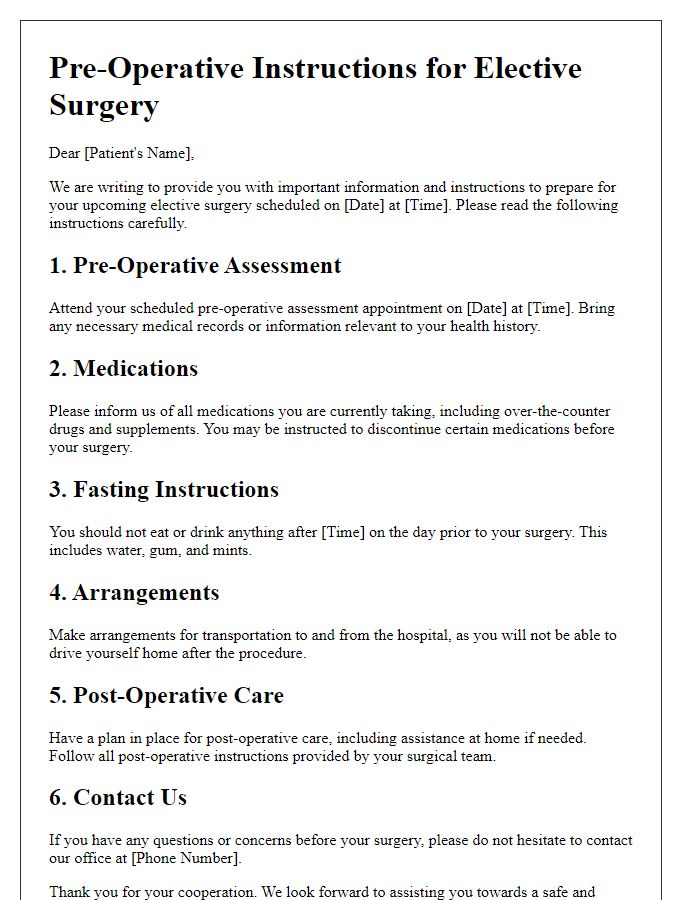
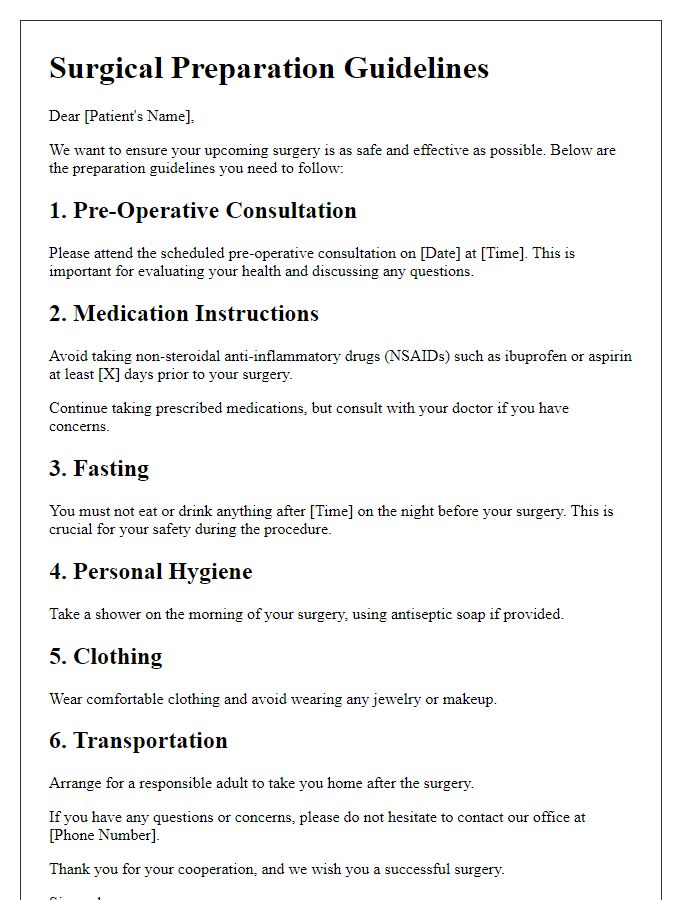
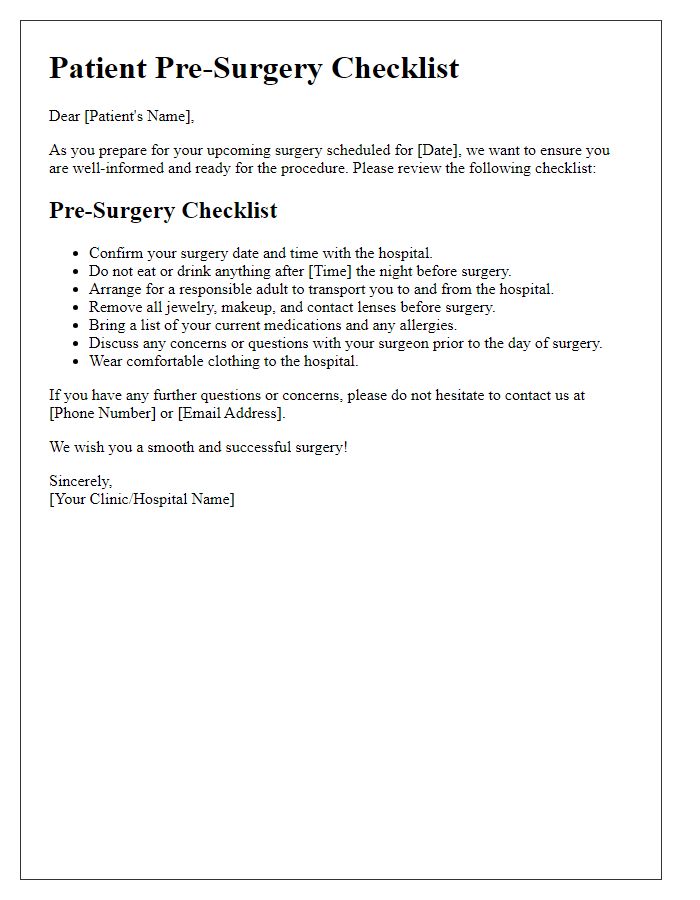
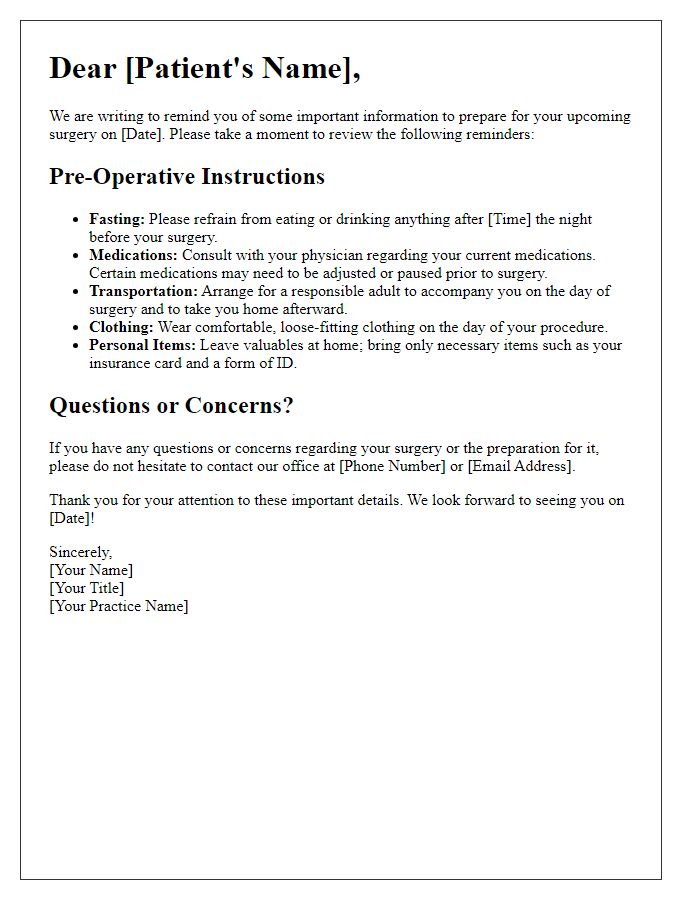
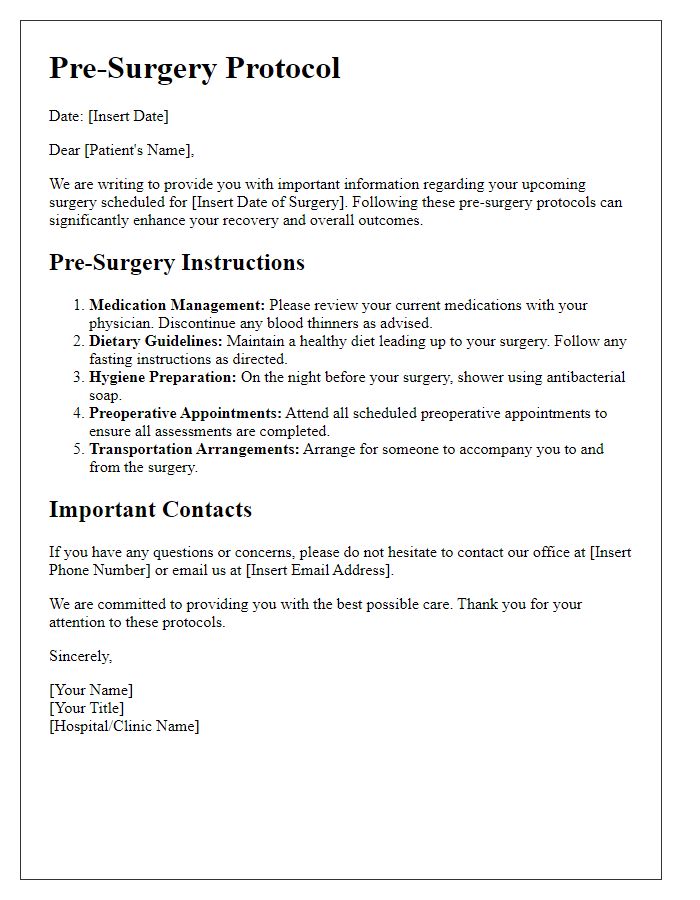
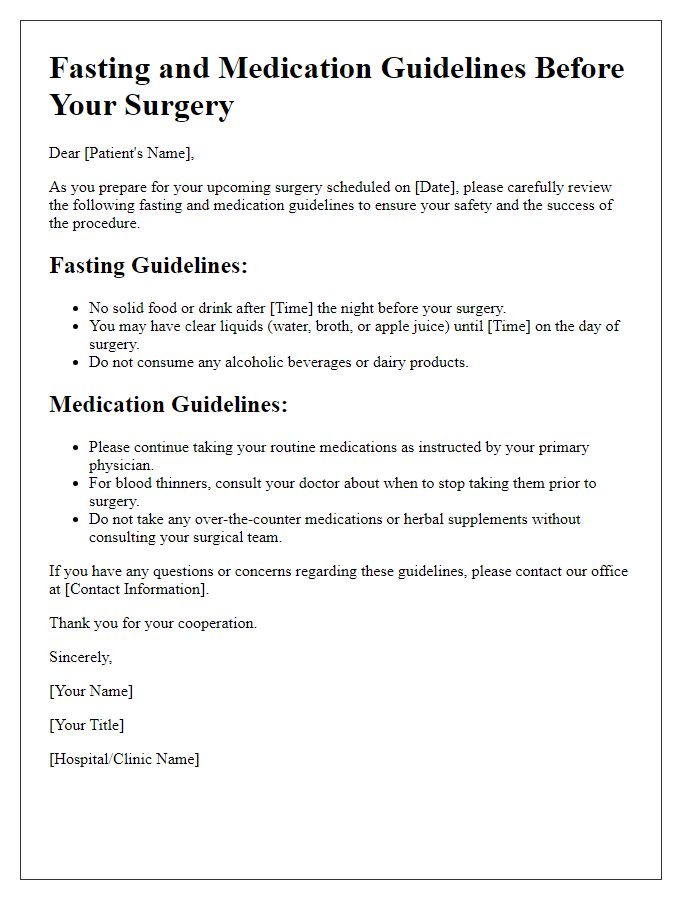
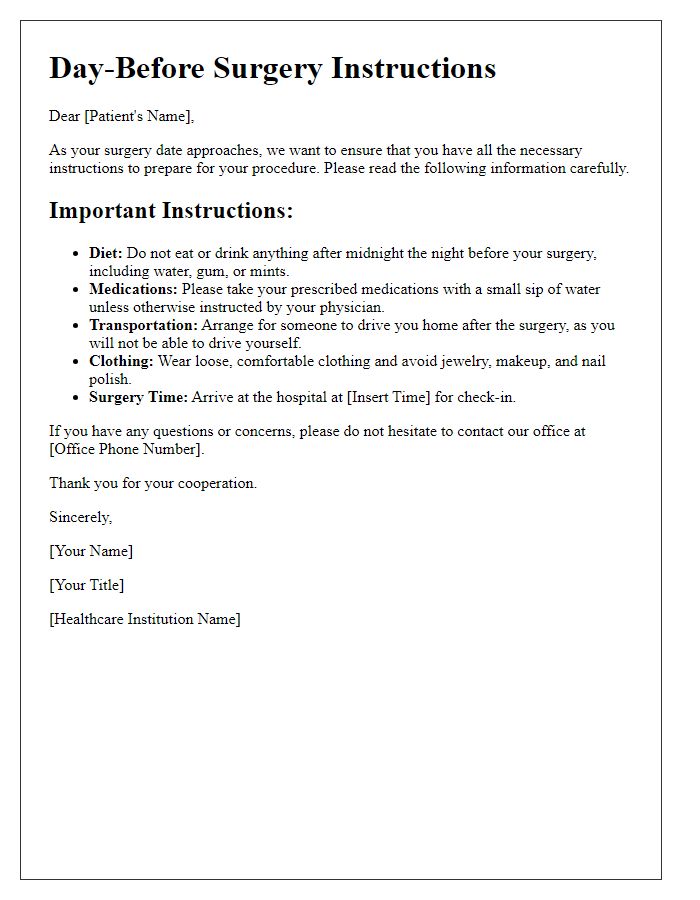
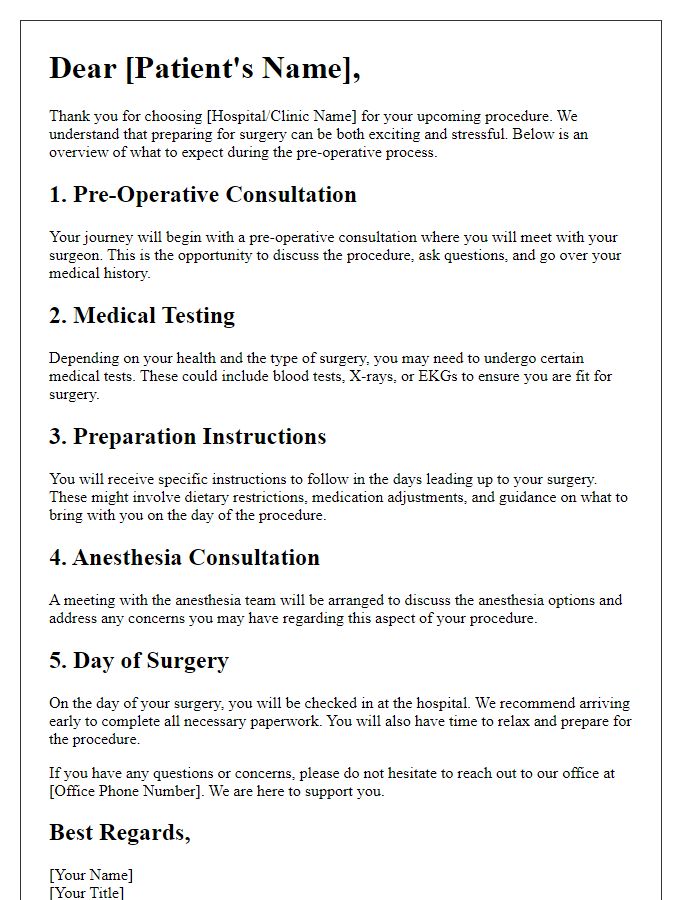
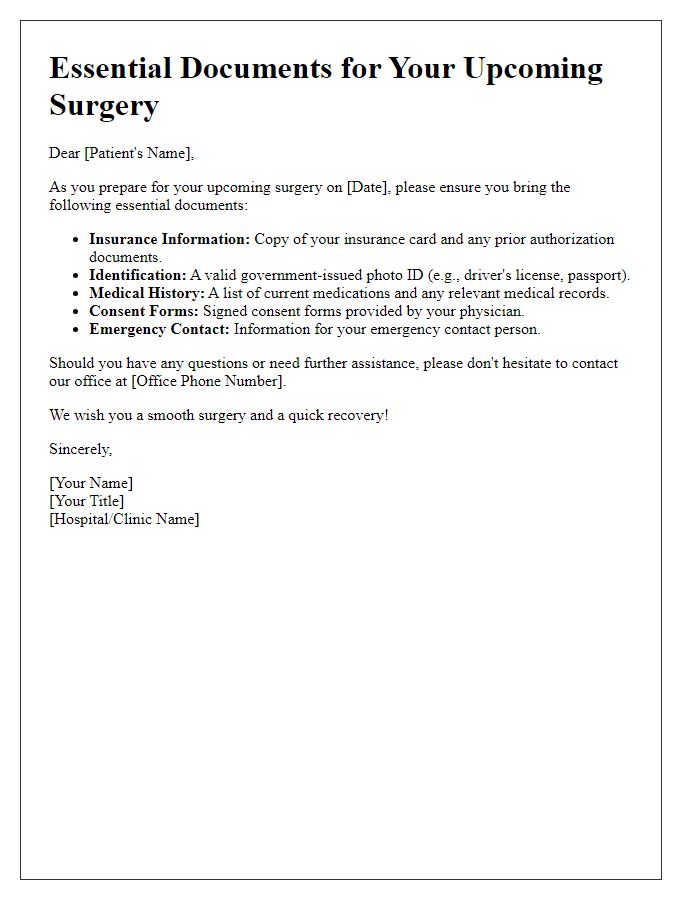
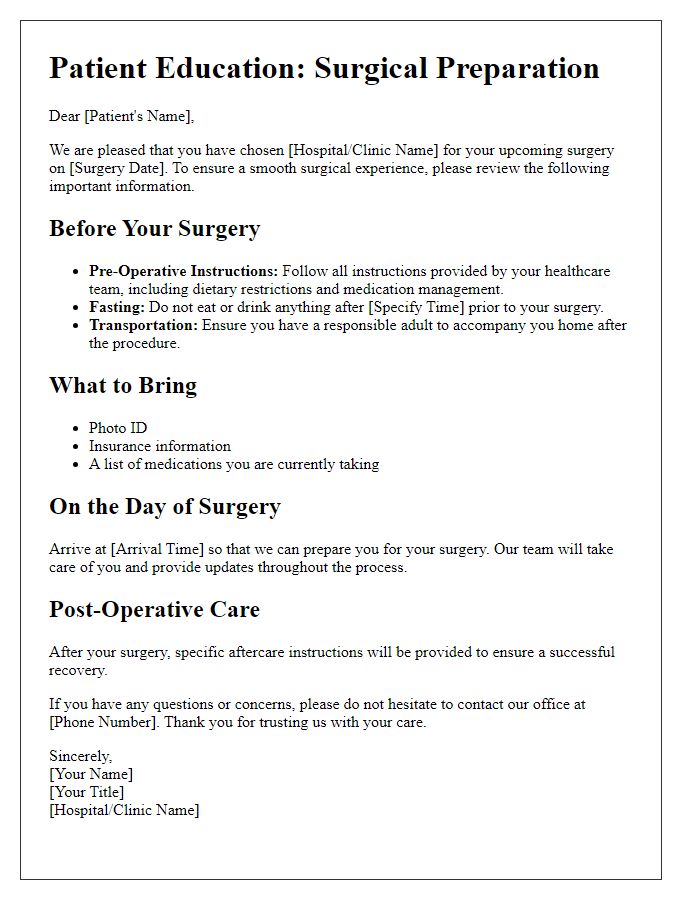


Comments